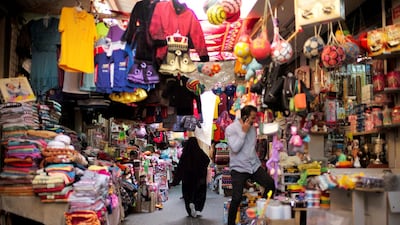At the start of January 2019, Bahrain launched a 5 per cent value-added tax (VAT), following Saudi Arabia and the UAE, both of which did the same in January 2018.
Consumers often assume that retailers will simply increase their prices by 5 per cent, passing the tax in its entirety on to consumers. Accordingly, they conclude that VAT constitutes a redistribution of income from consumers to the government and that the ability of sellers to set prices means that they can evade any ill effects. But is that actually what happens?
Consider a simplified economy where retailers import goods from abroad, employ locals, and resell the imported goods to the locals, who pay for the goods using the wages they earned from working at the retailers. Now imagine that the government imposes 5 per cent VAT on those goods, and that wages remain unchanged.
Will the retailers simply increase prices by 5 per cent? If that happens, while wages remain fixed, then the locals will not be able to purchase as much as they used to, as prices have increased.
When consumers purchase smaller quantities of goods, retailers have two options: maintain prices and simply suffer lower sales; or consider lowering prices a little, to soften the impact on sales, albeit earning a smaller amount on each unit sold. In most cases, they will take the latter option, as it implies higher profits than simply raising prices by 5 per cent and selling fewer units. In extreme cases, they may even leave prices unchanged, preferring to maintain sales, but at a lower profit per unit.
Whenever retailers choose to increase their price by less than 5 per cent, they are sharing the burden of the tax. The smaller the price increase, the greater the burden that they are bearing and if they freeze prices at their original level, then they are effectively paying the tax completely on behalf of consumers.
What determines how much prices actually rise and, therefore, how much of the tax burden is borne by consumers rather than retailers? It is the sensitivity of demand to prices, a concept that economists formally refer to as the “price elasticity of demand”.
If demand is very sensitive to prices, known as demand being highly “elastic”, then retailers will be very reluctant to increase prices despite the tax, because demand will decrease by a large amount, and their sales will decline dramatically. Under these circumstances, they will prefer to raise prices by a small amount only, bearing the most of the burden of the tax.
A good example of this is fast food. Fast-food demand is very price-sensitive because there are so many substitutes to fast food, both inside and outside the fast-food sector.
_______________
Read more:
Economics 101: When revenues are squeezed options exist beyond downsizing
Business Extra podcast: Is the US economy bound for recession?
_______________
After all, consumers always have the option of preparing food at home. Therefore, we should expect to see fast-food prices rise by less than 5 per cent after VAT is introduced, with consumers in that case barely feeling the effects of the tax.
In contrast, if demand is highly insensitive to prices, or highly “inelastic”, then retailers will readily increase prices because their sales will decline by only a small amount. That means consumers will bear almost all of the burden of VAT.
A good example of this is household water consumption. Household water consumption is insensitive to prices, because in many uses, there are no substitutes, and it is essential to life. Therefore, we should expect to see household water prices rise by almost the full 5 per cent after VAT is introduced, with consumers glaring angrily at their water bills as they bear almost the entire weight of the tax.
The millions of taxable goods and services that you can purchase in an economy vary diversely in the price sensitivity of demand, but we can say with certainty that there are many taxable goods and services that exhibit high levels of price sensitivity of demand. Therefore, retailers will inevitably face a significant burden of taxes such as VAT, and the increase in government revenues will not be exclusively funded by the higher prices paid by consumers.
In principle, if the government did want to introduce a tax, and to ensure that its burden was borne completely by a specific person or organisation, then it can use what is known as a “poll tax”. This is a tax that is levied directly on the desired individual/organisation. Governments have used this type of tax before but they are not very popular politically.
Instead, most prefer to tax activities such as consumption, income, inheritance, sales, imports and so on. When an activity is taxed, rather than an individual, then people will modify their behaviour in an effort to attenuate the tax’s impact upon them. As a result, it becomes virtually impossible to restrict the burden to a specific individual or organisation, and it will be shared according to the laws of demand and supply.
Omar Al-Ubaydli (@omareconomics) is a researcher at Derasat, Bahrain.


